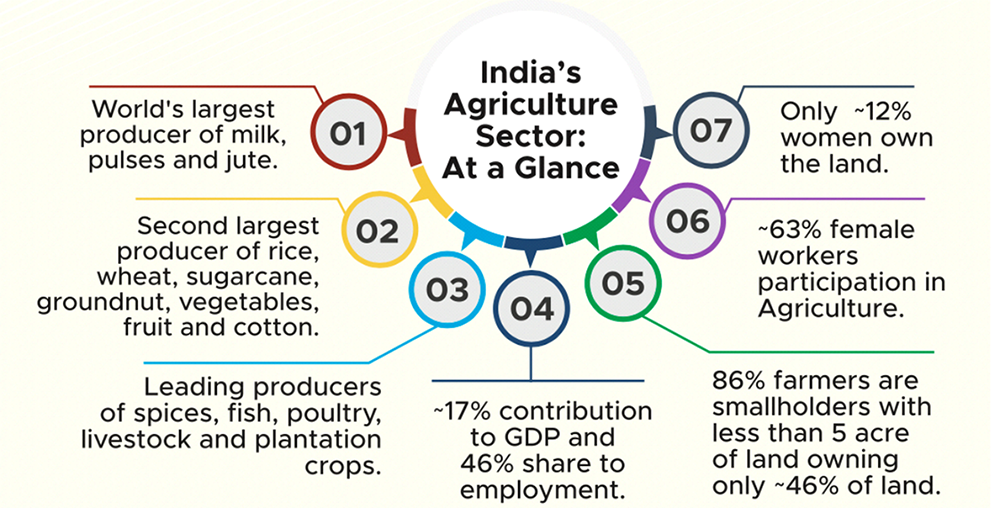Need for Promoting IBs in Agriculture and Food Sector
Most
(84%) of the world’s 570 million farms are smallholdings;
Less
than one in five landholders worldwide are women, despite comprising nearly half of the
world's agricultural workforce and producing up to 80 per cent of food in developing
countries.
Farmers belonging to tribal groups or residing in remote areas not benefited from
innovations in the Agri and food sector.
Perceived lack of business viability, gaps in understanding the needs and solutions of such
farmers' groups and lower economies of scale are key issues.
Lack
of access to innovative farm technologies and infrastructure, quality inputs, and
remunerative markets.



